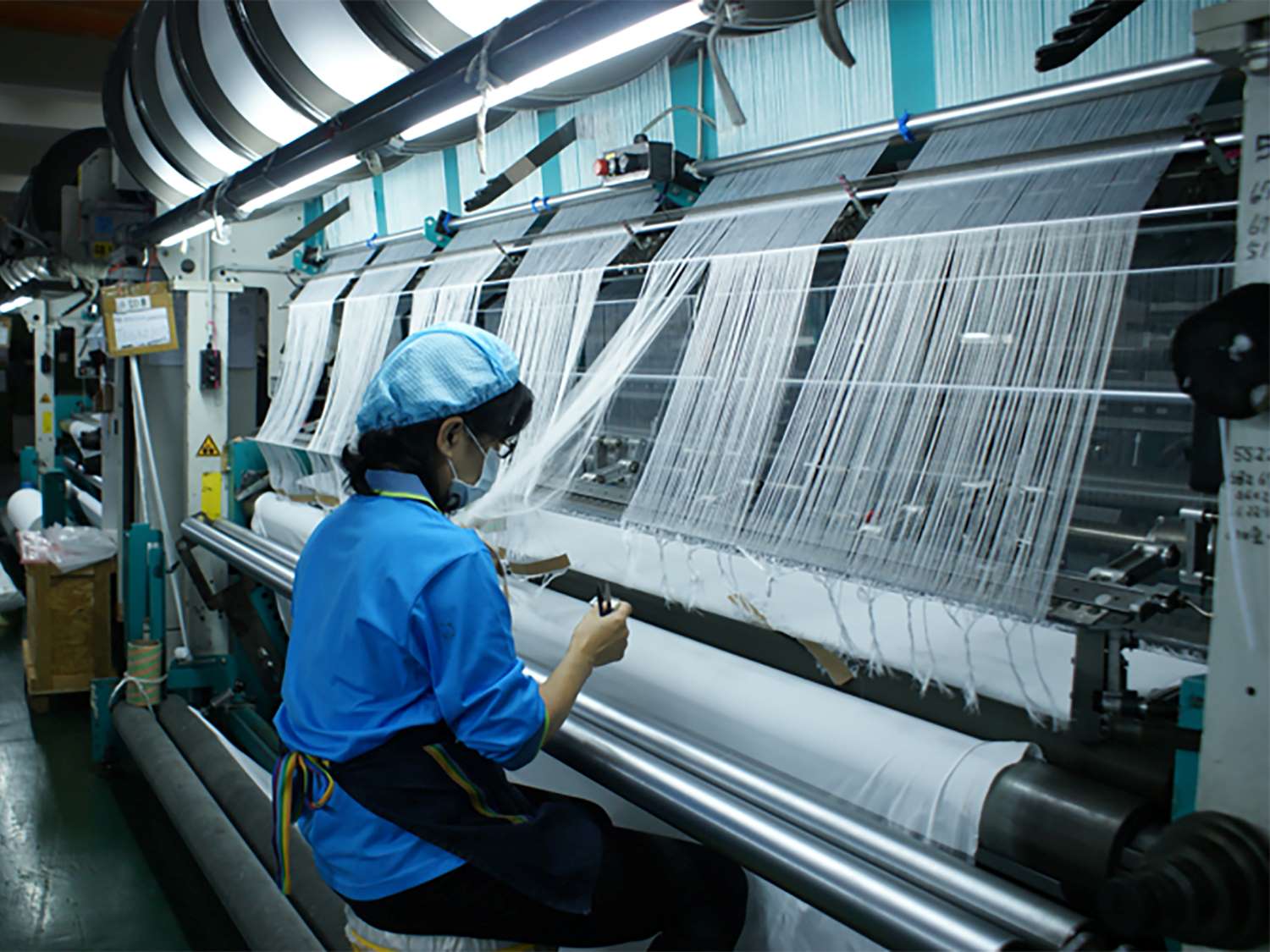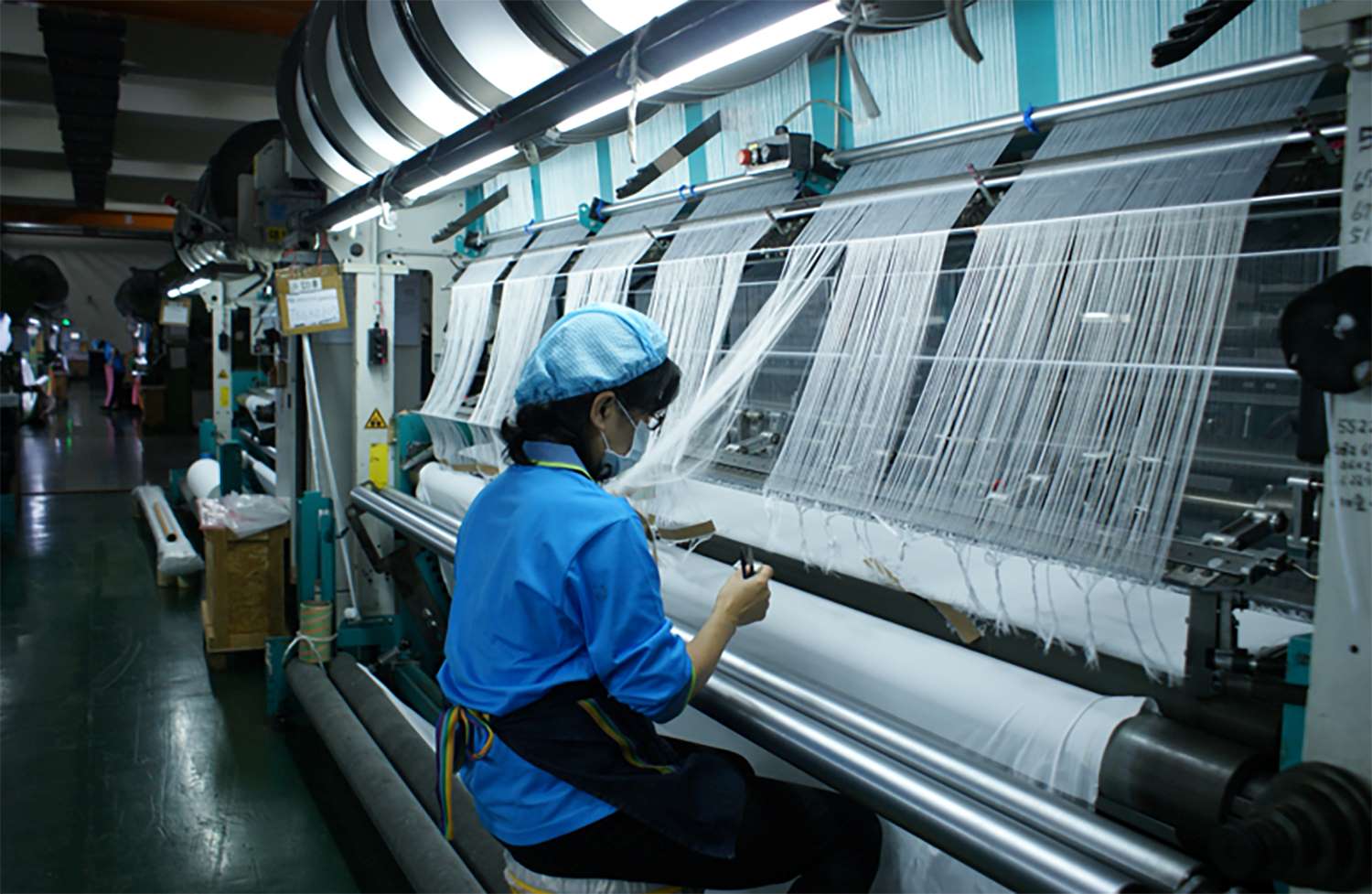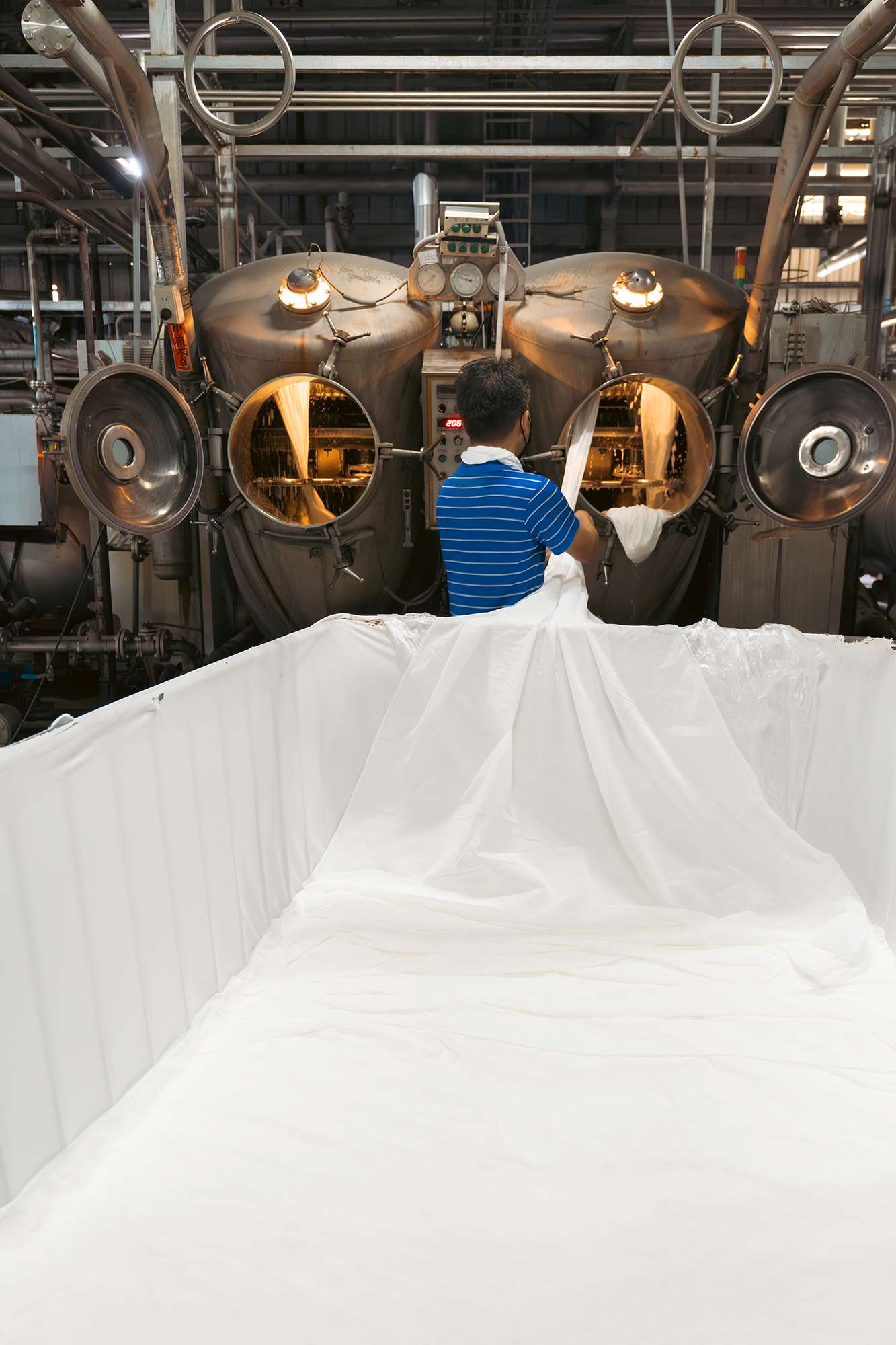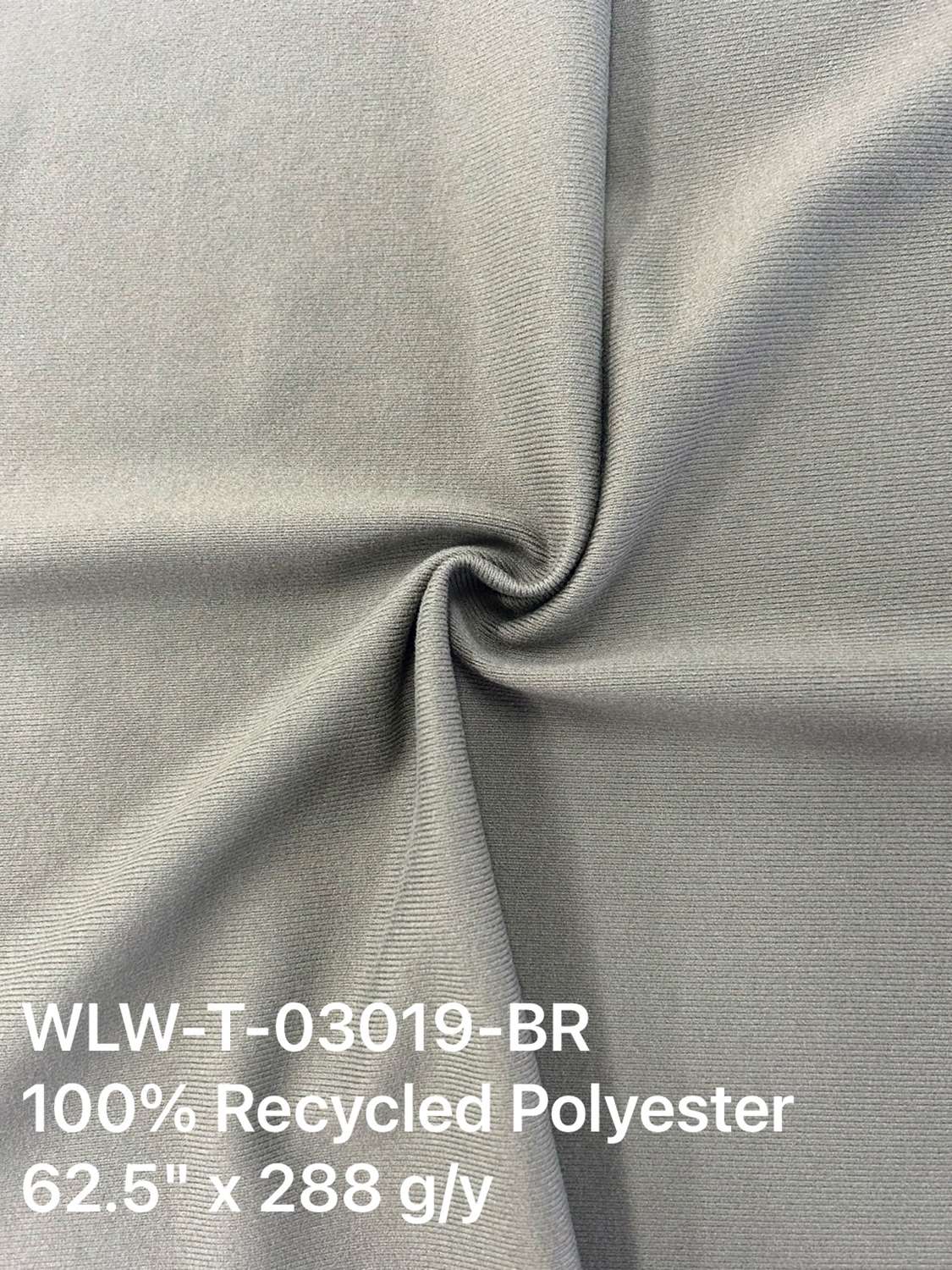Sponsored by Taiwan Textile Federation (TTF)
Ad. by TITA
WTiN finds out how Taiwanese mill Wu Luen overcame the challenges involved with integrating recycled textiles into its functional fabric lines.
As the textile industry comes under increasing pressure from consumers and legislators to work more sustainably, Taiwan-based mill Wu Luen has been researching and developing ways of meeting the challenge of integrating more recycled content into its functional fabrics.
The mill specialises in producing warp and circular knit fabrics with Spandex for urban leisurewear, activewear, swimwear and outdoor sportswear. Many of its fabrics are designed with functionality and offer cooling, antimicrobial and anti-odour properties.
In recent years, it has been developing functional fabrics that integrate sustainable content such as Bio-3 polyethylene terephthalate (PET) polyester.
Bio-3 PET is made using carbon capture and utilisation technology, which converts industrial waste gas into ethylene glycol as a raw material for low-carbon polyester filament to replace petrochemical raw materials.
“This novel raw material not only maintains the same characteristics and properties as petrochemical-based products, but also reduces greenhouse gas emissions by 30% compared with petroleum-based polyester,” says Wu Luen’s CEO Leo Wu.
The mill has also been working with Ocean Recycled Seawool yarn. This new generation of eco-friendly yarn is made from a combination of recycled PET bottles and nano-powdered oyster shells. This addresses the environmental pollution caused by oyster farming waste, while adding value to recycled PET bottles.
Wu Luen has also been working with biodegradable polyester, which is claimed to speed up the time it takes to decompose in an anaerobic environment from 450 years to three to four years, while having the same qualities as virgin polyester from petrol-based sources.
The challenge of working with post-consumer polyester
Wu Luen sources some of its recycled polyester content from polyethylene terephthalate (PET) bottles and some from discarded polyester apparel.
Working with post-consumer polyester can be a complex and challenging process because the fabric has already been dyed.
“Generally, the dyeing capability of virgin polyester increases the feasibility and diversity of textile product designs in clothing,” explains Leo. “But completely removing these colours and patterns from fibres and materials has been a challenge – at least it has been in previous recycling technologies.”
The fibres of post-consumer discarded textiles or apparel have already absorbed dye, which needs to be stripped out to create a new yarn with a consistent and stable whiteness of colour. The whiteness of each batch of yarn can vary slightly, even though special treatments have been applied to it upstream.
“The most difficult aspect of the process is how to handle the whiteness of yarn because that causes the dyeing process to perform inconsistently in each dye lot,” says Leo. “Maintaining the quality of each batch’s colour has tested the skills of our dyeing and finishing mill in the past.”
After much research, Wu Luen managed to source a yarn supplier that uses a new technology to strip the colour out of the recycled clothing and textiles.
“Their process ensures the regenerated polyester has stable dyeing properties and makes it possible for us to achieve the customers’ requirements for design and colour through weaving and dyeing,” said Leo.
Sourcing materials from nature
When it comes to choosing dyes, Wu Luen currently works with branded products because it finds them more stable, but its research team continues to experiment with different formulas and dyeing solutions from biobased sources.
“As we seek more environmentally friendly elements and themes, we aim to source from nature as much as possible,” said Leo.
The mill is also looking into sourcing more materials from nature, such as wool.
“Wool is one of the most functional natural materials: it offers renewability, biodegradability, durability, softness, warmth in cold weather, coolness in hot weather, and odour resistance,” explains Leo.
“Moreover, in our selection of wool for fabric production, we have obtained RWS certification. This ensures our wool comes from humanely treated sheep and farms that manage their land sustainably.”
In a bid to create a more environmentally friendly working environment, Wu Luen has also committed to initiatives such as solar power, natural gas usage, and wastewater reuse.
“To achieve sustainable development, we are committed to seeking solutions that reduce carbon footprint, minimise resource waste, and pollution, creating a symbiotic environment,” says Leo.
Wu Luen believes that environmentally friendly, low-carbon, and high-performance products will become the mainstream for international brands in the future, as will digitalisation.
“The textile industry is a labour-intensive industry, and digitalisation of production processes is not only a trend but an inevitability for the future,” says Leo.
Wu Luen’s dyeing and finishing factory has introduced fully automated equipment and digital monitoring systems, automating the conveyance of dye dosage and monitoring production processes globally. Not only does this reduce the risk of personnel inhaling dyes, it minimises the rate of human error and improves production efficiency, according to the company.
Wu Luen’s vision for the future is one in which the entire supply chain will be digitally interconnected to enhance efficiency and transparency. And, until that time comes, it continues to research and develop more sustainably produced products.
“Our company will continue to focus on developing environmentally friendly textiles, biodegradable plastics, and natural materials. We are committed to sustainable development and the utilisation of renewable energy sources,” says Leo.
Have your say. Join the conversation and follow us on LinkedIn








